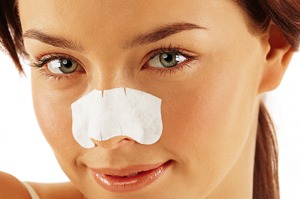Rhinoplasty Recovery Tips
While most cases of and nose reshaping are purely for cosmetic purposes, this procedure can be used in correcting birth defects and fixing injuries.
After your rhinoplasty surgery in Thailand, you will experience some pain which should fade relatively fast. To help relieve the pain, many patients report taking pain relievers for several days after the surgery. Then they proceed on to use milder pain relievers weeks following the procedure.
Keep in mind that swellings and recovery time will vary depending on the type of rhinoplasty you undergo. This can either be open rhinoplasty or closed rhinoplasty. Your plastic surgeon will recommend the procedure that they consider to be best, based on the technique they prefer and your particular goals.
To help you along the recovery journey, there are several things you could do to make the entire process go by easily.
- Listen to Your Surgeon
It is important that you follow your surgeon’s instructions. Even when you read the numerous articles available online about rhinoplasty process of recovery, keep in mind that the instructions you get from your plastic surgeon are specific regarding the medication to take, ways to care for the area operated on to prevent infection, when to take your medication, and when to go back for follow-up exams.
- Get Lots of Rest
Following your nose job procedure, you might have some congestion that might make it harder for you to fall asleep. However, rest is key in the recovery process. The body uses energy to heal itself, and to helps restore that energy, it is important to get a solid seven to eight hours of sleep every night.
- Avoid bumps and injury
Injury to your nose during recovery can lead to complications and even cause additional setbacks. During rhinoplasty recovery, most of the nasal tissue will be tender and swollen. Therefore, any injury can be detrimental to the healing process not to mention painful.
Make sure you avoid bumping the nose and talk to your doctor immediately should you injure yourself when in recovery. You might have to undergo a quick check-up or have detailed imaging to establish the level of injury.
- Use Cold Compresses
During the first 72 hours after your surgery, use a cold compress to help reduce the swelling. Be careful not to use the cold compress directly onto your nose. But instead, use it on the cheeks to avoid accidentally shifting any cartilage and bones.
- Stay Cool
Relaxing sauna, steamy showers, and a hot bowl of soup might seem like a good idea, but they are not good for the swollen nose. Heat can cause the nasal tissues to swell more, that’s why it advisable you take a cool diet and room-temperature foods. Also, take lukewarm showers, and avoid the heat in weeks to follow your rhinoplasty procedure.
- Eat Healthily
Taking a balanced diet after your surgery can help speed up your healing process as this provides the body with the nutrients it requires to heal itself.
A diet made up of eggs, nuts, fish, meat, yoghurt, and other protein-rich foods will help your body in rebuilding damaged tissues in and around the nose.
Also be sure to include lots of vitamins in your diet, especially Vitamin C and Vitamin A. Vitamin A is a good immune booster which will help fight infection and can be found in dark, leafy greens such as kale and spinach. Vitamin C helps in collagen regeneration, a protein that helps connect your skin tissues. Some great sources of Vitamin C include broccoli, citrus fruits, and Brussels sprouts.
- Avoid Blowing Your Nose
You will experience congestion for several weeks or months after surgery. Such a feeling is as a result of the swollen nasal tissues. Fight the need to blow your nose. You can also talk to your surgeon about using saline nasal sprays to help moisturise the nasal passages as the swelling reduces. You could start blowing your nose 6 weeks after surgery.
You might be wondering about sneezing. When you feel like sneezing, try to sneeze using your mouth rather than your nose. It might sound gross, however, it is a preferable option than damaging the fragile nasal passage which would lead to slowing down recovery.
- Avoid Vigorous Exercise
For most patients, it takes close to 6 weeks following surgery for the nasal bones to heal. During your recovery time, avoid engaging in strenuous exercise. Also, some movements that you might consider harmless such as bending over, lifting, or stretching can result in increased nasal swelling. So it is best that you wait until your surgeon gives you the go-ahead to resume regular activity before you ease back into a regular workout routine.
- Be Patient
Most importantly be patience. Healing takes time but soon enough you will be enjoying the surgical results you’ve always wanted. While following the above tips won’t make the recovery process shorter, these tips will help speed up the process and improve your recovery experience.


